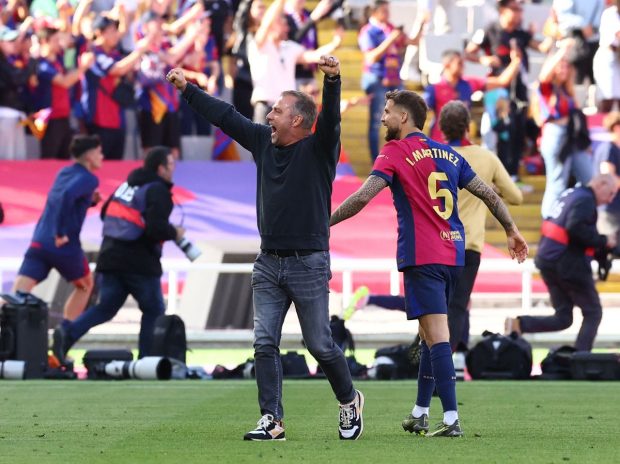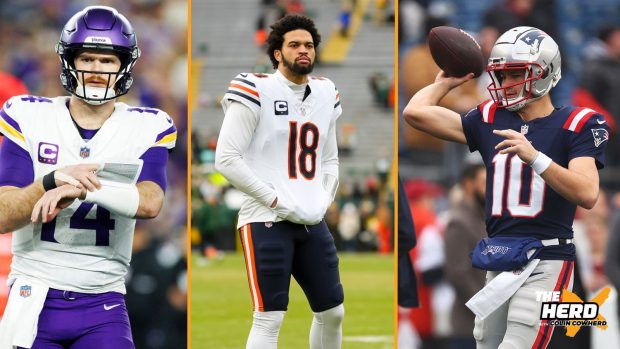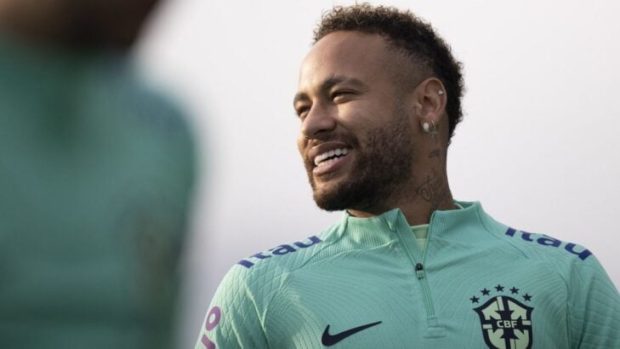

The Boston Red Sox were perfectly justified in asking Rafael Devers to vacate third base for Alex Bregman and become a designated hitter. They are far less justified in asking Devers to switch again and, this time, play first base.
It’s not Devers’ fault the Red Sox were negligent in finding an alternative for first baseman Triston Casas, who missed nearly four months in 2024 with a strained left rib cage and is out for the rest of 2025 with a ruptured left patella tendon.
Advertisement
And heaven knows it would not be easy for Devers to transition to first base, a position that is nuanced and difficult to master.
In theory, the move would make sense, providing an offensive upgrade over the current mishmash at first and clearing the DH spot for Masataka Yoshida, whose uncertain fit on the roster once he returns from shoulder surgery also is not Devers’ doing.
In reality, by agreeing to such a change in the middle of a season, Devers would risk injury, offensive regression and embarrassment.
Devers isn’t above reproach in this latest chapter of As The Red Sox Turn, which includes a potential disconnect between chief baseball officer Craig Breslow and manager Alex Cora. But Devers is in a lose-lose situation almost entirely of the team’s making. We say “almost” because if Devers were a better defender at third base, maybe the Sox would have been less inclined to pursue Bregman.
Still, what exactly is the Sox’s end game here?
Does Devers become the “great teammate” Breslow envisions, doing whatever the team wants, whenever the team wants, regardless of the potential consequences?
Or does Devers stand firm, refuse to play first and continue to look selfish even though he already made one team-first sacrifice this season by becoming a DH in the second year of his 10-year, $313.5 million extension?
With that move, too, the Red Sox went too far. Once they signed Bregman, they need not have, in Devers’ words, “told me to put away my glove.” Knowing they were thin at first behind Casas, the Sox could have begun Devers’ acclimation to the position right then and continued giving him reps at third as well.
Instead, they delivered this shock.
The guess here is that Devers will be shamed into making the switch. And if he struggles — a real possibility, as Kyle Schwarber, a former makeshift first baseman with the Red Sox, can attest — what will any Sox fans, players and executives grumbling about Devers’ stubbornness say then?
Advertisement
From Jon Lester to Mookie Betts to Xander Bogaerts, the John Henry ownership has a history of botching it with star players. The signing of Devers was at least in part a reaction to the team’s failure to keep Betts, which proved a disaster, and Bogaerts, which looks better by the day. But at least it was a commitment.
Devers, 28, was to be the centerpiece of the next Red Sox renaissance. And less than 2 1/2 years after giving him the richest deal in franchise history — under a different head of baseball operations, Chaim Bloom, but the same ownership — it almost seems as if the team wants him to go away.
The idea of a trade at some point isn’t all that far-fetched, even with Devers owed more than $250 million, including a portion deferred. For a hitter of his quality, the contract soon might look like something of a bargain, at least compared to Juan Soto’s $765 million and Vladimir Guerrero Jr.’s $500 million.
Even if Bregman exercises his opt-out and departs as a free agent, the Sox can play top infield prospect Marcelo Mayer at third, leaving Devers without a position and possibly without a team. His contract does not include a no-trade clause, only a $2 million assignment bonus if the Sox send him to another club.
Breslow, who declined a request for comment, surely would object to any suggestion he wants to purge Devers, as would Henry and CEO Sam Kennedy. After Devers publicly revealed Breslow’s request for him to play first, that power trio embarked upon the Sox’s most dramatic journey since Doug Mirabelli’s police escort to Fenway Park in 2006, hastily flying to Kansas City on Friday to demonstrate its grave concern.
Three days after Henry and Cora met with Devers, the standoff continues. Not that it’s bothering Devers any — he went 7-for-12 against the Kansas City Royals this weekend with a 440-foot homer Sunday. But the entire episode smacks of the tendency of some modern front offices to view players as robotic chess pieces capable of moving around the field according to management’s whims. And it was all so avoidable, if the Red Sox had just been upfront with Devers from the start.
Advertisement
Devers, remember, criticized Red Sox management before the 2024 season for failing to upgrade the roster. So, heading into the 2024-25 offseason, Breslow and Cora could have sat him down and said: “Raffy, we heard you. We’re going after some players. One of them could be a third baseman. And if we get, say, Bregman or Nolan Arenado, we’re going to need you to play either first base or DH.”
When reporters asked Breslow about moving Devers off third at the team’s end-of-season news conference last Sept. 30, the chief baseball officer acknowledged such a talk might be necessary. “Those conversations, if they were to occur, would definitely happen internally before I discuss them here,” Breslow said.
At the Winter Meetings, the question came up again, and Breslow and Cora said Devers was Boston’s third baseman. Which would have been fine as a public stance and negotiating leverage against Bregman and others if Breslow had kept Devers abreast of the team’s maneuverings.
Evidently, Breslow did not.
The Sox, in their desire for Devers to be a “great teammate,” fail to recognize it’s a two-way street. In awarding Devers a monster contract, it was reasonable for the team to ask him to take on greater responsibility. And in accepting the deal, it was reasonable for Devers to expect the team to treat him better than it would some rookie.
That’s not the way this is playing out, which leads to another question:
Where is Cora, the Sox’s great facilitator?
Cora first became Red Sox manager in October 2017, shortly after Devers’ major-league debut. The two formed a lasting bond, cemented in part by the Sox’s World Series title in 2018. Cora, it seemed, was the most persuasive voice in the behind-the-scenes conversations that helped Devers accept becoming a DH.
But Cora, who declined comment, seemed to resist the growing Devers-to-first-base drumbeat, saying earlier this week: “Cut-offs and relays — there’s a lot of stuff. … It’s a tough position to play, a tough position to learn.” Breslow, not Cora, was the one who asked Devers to make the change, raising the possibility of disagreement between the manager and chief baseball officer, a possibility neither has addressed.
Advertisement
Cora knows Devers sometimes takes things hard. Maybe the manager believed he could not go back to the well with his star player. Maybe he disagreed with even asking Devers to make the switch. Maybe he doesn’t want Devers in the field at all.
As a former player, Cora understands every player is different and that some are less adaptable than others. Breslow, another former player, should understand that, too.
Betts, who came up as an infielder, was willing to move to shortstop for the Los Angeles Dodgers to prove a point and had part of spring training to adjust. Bryce Harper moved to first base to accelerate his return from Tommy John surgery and also had time to prepare.
The Red Sox signed Devers in 2013. They know he is not as fluid an athlete as Betts or even Harper. They also know, or should know, how he might react to perceived slights. Yet, they keep pushing him, creating tension instead of crafting something akin to a partnership.
Some of Devers’ comments were overly dramatic, ill-advised. No one is asking him to “play every position out there.” And when he said the Red Sox did not stay “true to their word” about him playing DH, well, circumstances changed. Devers should not have been offended by the team’s request, just as the Red Sox should not be offended by his resistance.
The worst part of this is that some will view Devers as a malcontent, when for the vast majority of his career he was considered anything but. The Red Sox gave him the extension because they believed in the person as much as the player.
Now this.
The Sox do not want to play one of their top prospects, Mayer or outfielder Roman Anthony, at first, valuing their defense almost as much as their offense. It’s not Devers’ job to accommodate Yoshida, a $90 million mistake signed through 2027. It’s also not Devers’ job to patch first base when alternatives exist: Garrett Cooper/Dominic Smith types at Triple A, Anthony Rizzo as a free agent.
The Sox paid Devers to hit. Let him hit. And figure out the rest.
(Photo: Scott Winters / Icon Sportswire via Getty Images)
This news was originally published on this post .











Be the first to leave a comment